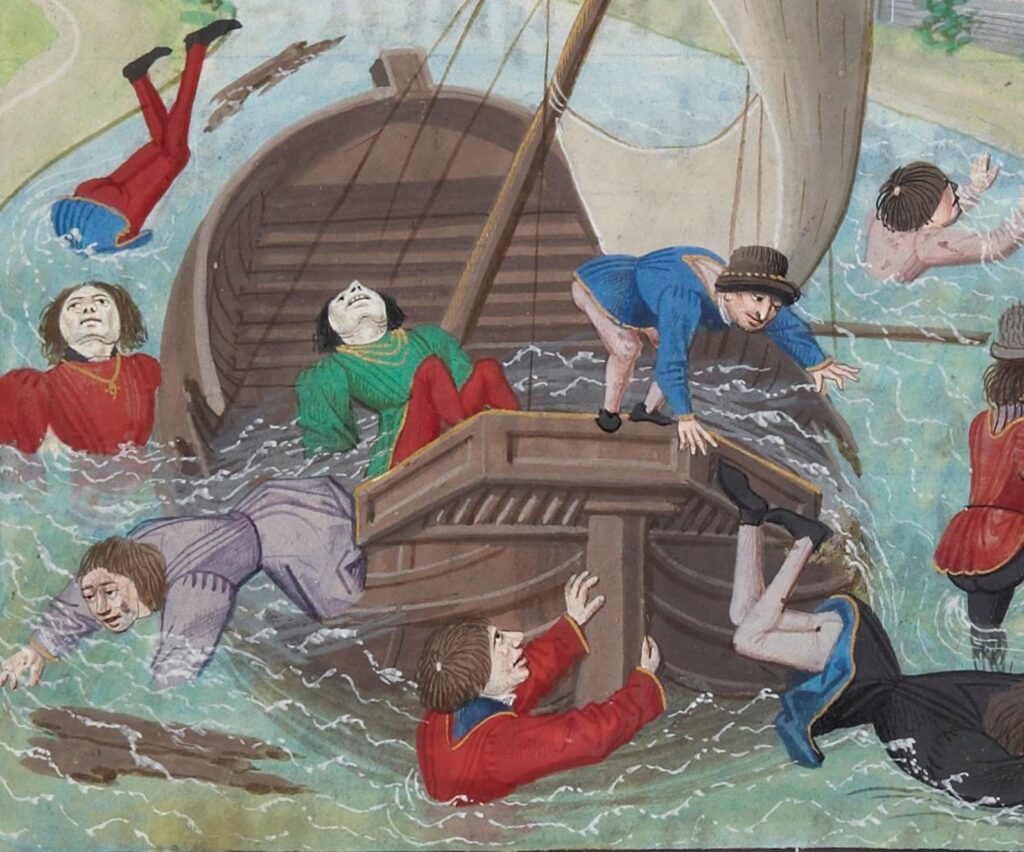Medieval maritime law governed nautical matters and disputes over such issues as when to jettison a cargo during a storm, the collision of two vessels, rights to a shipwreck or stranded whale, discipline for unruly or mutinous mariners, the responsibilities and remuneration of shipmasters and crew, and the payment of freightage, among other issues. By the late thirteenth century, a body of customary law known as the Laws or Rolls of Oléron governed many of these disputes, although individual ports also produced their own regulations to resolve maritime disputes.

Other types of maritime law included treaties between the English crown and other sovereign powers (and sometimes port cities) that generated laws about territorial rights at sea, navigation, port tolls, and which ships could be hired to carry domestic cargoes. Statute law also occasionally considered maritime matters, especially in terms of the authority of admiralty jurisdiction. Admiralty courts in England drew on continental civil law (ius commune) to adjudicate naval matters, coastal defense, piracy, the administration of prize, and various other problems dealing with shipping. Maritime disputes also came before the Chancery courts in petitions, which the king could order investigated in the central courts. Larger port towns also settled maritime disputes in their local courts, sometimes with resort to the Laws of Oléron, but other times factoring in local customs and regulations. By the sixteenth century, however, Admiralty court jurisdiction had replaced much of the authority that local ports once enjoyed over maritime disputes.
This Source section covers the following forms and venues of maritime law:
- The Laws of Oléron
- Admiralty Courts
- Cinque Ports Courts and Custumals
- Local Maritime Courts and Regulations
- Central Courts
- Petitions
- Treaties